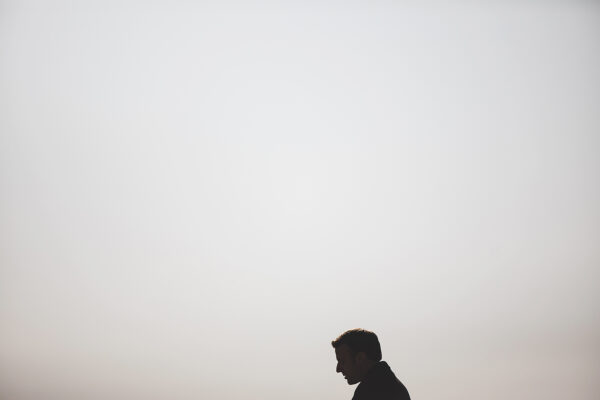
Emmanuel Macron is the most liberal president France has had since the 1970s, when Valéry Giscard d’Estaing legalized abortion and made contraceptives commercially available. Yet there has been a tendency on the left to blow every hint of Macronist illiberalism out of proportion.
Macron did not, on balance, cut public spending. He raised welfare benefits, extended unemployment insurance to the self-employed and penalized companies that made excessive use of short-term contracts. But he also liberalized labor law, to make it easier for firms to hire and fire workers, and abolished a wealth tax few millionaires paid, which earned him the moniker “president of the rich”.
Police largely tolerated the so-called Yellow Vests protests against Macron in 2018, but left-wing critics seized on a few instances of police violence to argue the president couldn’t stand criticism.
Now that Macron is taking a harder line against Islamic extremism, following the beheading of a French teacher who showed cartoons of the Prophet Muhammad to his pupils, John Lichfield reports for Politico Europe that the same tendency is rearing its head on the (American) left.
The New York Times claims Macron has ordered a “broad government crackdown against Muslim individuals and groups.” The World Socialist Web Site, in a widely retweeted story, accuses Macron of “whipping up … anti-Muslim hysteria.” An American sociologist who researches white supremacists laments that French officials “respond to violent extremism with violent extremism.”
What is this “broad crackdown”? Macron’s government has closed a mosque, which was run by a radical imam. A number of arrests have been made. “Anti-Muslim hysteria”? 51 more Islamic organizations are being investigated for alleged extremist sympathies. What about “violent extremism”? There are plans to take away the French passports of 231 foreign-born criminals.
Some of this may be an overreaction. Expelling dual citizens will be difficult if their countries of origin refuse to take them back. The rhetoric of Macron’s interior minister, Gérald Darmanin, has not been helpful. He believes France is fighting a “civil war” against Islamists.
But — the convictions of the woke American left notwithstanding — words are not violence, and anyway Macron himself hasn’t gone so far.
Islamophobia
This isn’t the first time the French president has been accused of Islamophobia on the flimsiest of grounds.
When he put EU membership talks with Albania and North Macedonia on hold in 2019, arguing European voters had tired of expansion, Portugal’s former Europe minister, Bruno Maçães, claimed it was really because the two Western Balkan states have large Muslim populations.
When Macron argued political Islam is incompatible with “European humanist values, which are based on the free and rational individual, equality between women and men, and emancipation,” Mehreen Khan, the Brussels correspondent of the Financial Times, compared him to far-right publisher, and former Donald Trump strategist, Steve Bannon.
When Macron identified Islamic terrorism, not Russia, as NATO’s number-one enemy, Tom Wright, a senior fellow at the Brookings Institution, disparaged the remark as the return of the “George W. Bush foreign policy.”
Terror attacks
Macron’s comments may make more sense when you realize that France has suffered more Islamic terrorist attacks than any other European country in the last decade.
Lichfield points out there have been 36 serious attacks by Muslims in the eight years since Mohamed Merah murdered three children outside a Jewish school in Toulouse and killed five others in March 2012. Half of those have taken place since Macron won the election in 2017.
Muslim fanatics claiming affiliation with Al Qaeda killed eight employees of the satirical magazine Charlie Hebdo, two police officers and two bystanders in January 2015.
Later that year, 130 Parisians were killed in coordinated attacks on the Stade de France, Bataclan theater and various cafés and restaurants. It was the deadliest attack on French soil since World War II.
The Tunisian-born Mohamed Lahouaiej-Bouhlel killed 86, and injured 434, when he plowed his truck into a Bastille Day celebration on the Promenade des Anglais in Nice in 2016.
38 French soldiers have been killed in combat with militant Islamists in Burkina Faso, Chad, Mali, Mauritania and Niger since 2014; a war France is fighting with little support from its allies.
To imply that France is more culprit than victim is “dishonest and dangerous,” according to Lichfield, who lived in the country for twenty years.
Entire policy
He also urges critics to consider the whole of Macron’s policy.
Before the latest attack, the president had announced measures to ban foreign-paid and -trained imams. Tax breaks and state funding will be available only to mosques which sign a charter underwriting the values of the French republic: democracy, secularism and the rule of law.
Macron has recognized that France let down ethnic minorities by confining them to suburban ghettos, where housing is poor and jobs are scarce. He has promised new policies to improve the prospects of the banlieues.
Somehow none of that made it into The New York Times.
It remains to be seen if Macron will live up to his promises. One can look at the whole of his program and still decide it leans too heavily on repression and doesn’t do enough to address the root causes of radicalization.
But to suggest Macron is presiding over a crackdown of France’s five million Muslims, and meeting violence with violence, is not just incorrect; it makes it harder for fair and legitimate criticism of his policy to be heard at a time when plenty of French voters, exhausted by years of Islamic terror, would welcome a crackdown.
